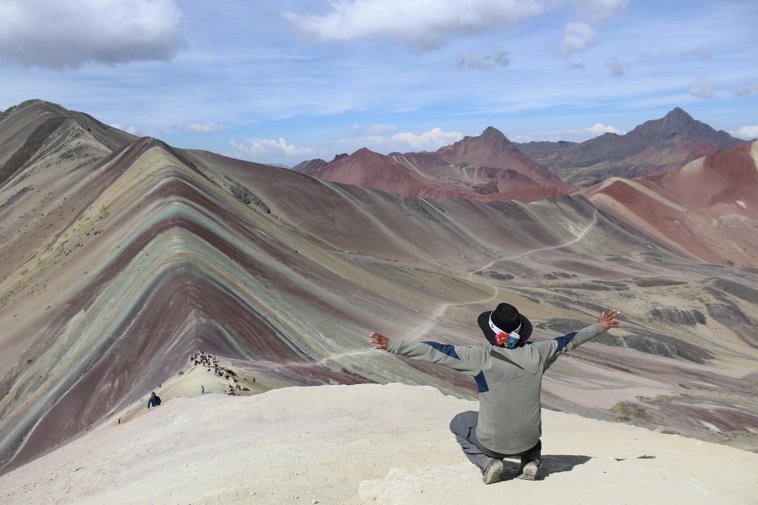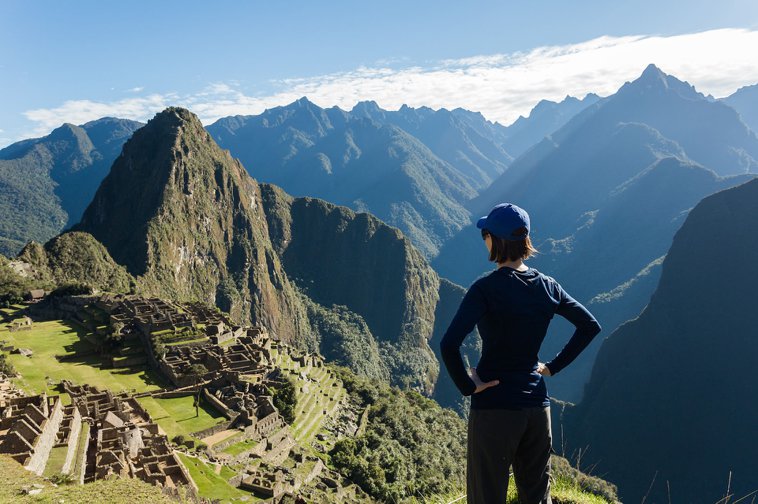How to Sound like a Local in Peru
Planning a trip to Perú? Don’t be surprised if, on your trip, you hear a sentence like this one:
Ayer mi jerma dejó su chompa en el bus.
Scratching your head over what this sentence means? If you are, it may be because this sentence is full of jerga peruanaor Peruvian slang. Not to worry, though. In this article we’ll introduce you to some key words and phrases that will help you blend in with the locals once you arrive.

Palta - Avocado
Peru is well known for its luscious avocado trees that can bear aguacates, or avocados, the size of your foot! That said, if you use the word aguacates with the locals of Lima or Cuzco, they’ll be quick to correct you. That’s because Peruvians use the word paltainstead of aguacate when referring to an avocado.
| examples |
|---|
¡A su! - Woah!
You’re likely to hear someone scream ¡A su!after burning their hand on the stove or being startled by someone creeping up on them. If you suspected that ¡A su! is actually a shortening of A su madre, literally to your mother, you’d be right. However, whereas this may have some negative connotations elsewhere in the Spanish-speaking world, in Peru it is simply used as an exclamation of surprise or pain.
Al toque - Right away
When Peruvians use the adverbial phrase al toque, they mean they want something done right away. Keep this useful phrase in your back pocket if you are feeling apurado(rushed) and need to get a number of tasks done immediately.
| examples |
|---|
Luca - One Peruvian Nuevo Sol
If you travel to Peru, you’ll have to cambiar de divisas(exchange your currency) to the official Peruvian currency. Peru uses the Nuevo Solas their currency, and they typically refer to one Peruvian Nuevo Sol as una luca. If you come from the United States, Peruvians are likely to say that they’re trading soles for cocos, their colloquial term for the United States dollar.
| examples |
|---|
Hacer una chancha - To pool money together
You’re likely to hear this phrase upon going out to dinner with friends after someone asks for la cuenta, the bill. In Peru, una chanchais a collection of money among peers, and hacer una chanchais to pool that money together to pay for something collectively.
| examples |
|---|
Qué roche - What a shame
In Peru, rocheis the same thing as verguenza, or shame. Likewise, a common phrase that Peruvians use to show their pity or sympathy is the phrase, qué roche, which means what a shame.
| examples |
|---|
Chompa - Sweater
The word chompais used all over the Andes region of South America to refer to a sweater or jacket one would put on to keep warm in the mountains. Depending upon what Andean country you visit, your chompa can appear in many different shapes and sizes. If you venture into the mountains of Peru, make sure you buy one made of lana de alpaca, or alpaca fur, since they are super warm and soft and typically offered at a cheap price from the local market.
| examples |
|---|
Tombo - Cop
Now when your amigo limeño(friend from Lima) uses the word los tombos, you’ll know that she or he is talking about the cops. Tombo is a colloquial name that Peruvians use for a police officer, but also keep in mind that they also use the standard word policía.
Tono - Party
When you hear your Peruvian friends start talking of un tonohappening down the street, get ready to party. Tono is Peruvian Spanish for a party in English, and, just as with rumbaand rumbearin Colombia, Peruvians can change this noun into the verb tonear, which means to party. In addition, if you hear the word tonazo, prepare to be out dancing all night; that’s the Peruvians’ way of graduating tono into another noun that means a huge party.
| examples |
|---|
Jerma - Woman, Girlfriend, Wife
The word jermacan take many meanings for Peruvians. Often they’ll use it to refer to someone’s female spouse, such as one’s wife or girlfriend. In other contexts, it can be simply used to mean woman or girl. It is said that this word was created by inverting the syllables in the word mujer(woman in English).
| examples |
|---|

¡Haz tus maletas!(Pack you bags!) You’re ready to explore Lima, Cuscoand Arequipa!
Traveling throughout the Spanish-speaking world? Learn how to sound like a local all over with these articles:














